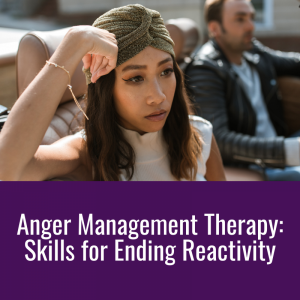A Parent’s Guide On Teenagers Sex Education
As a parent, your responsibility is to prepare your child for adulthood as much as possible, including teenagers sex education. After all, it’s completely normal for your teenager to have many questions and a lot of thoughts about sex education, so it’s vital to approach this topic maturely. Even allow your child to ask you everything that’s on their mind and respond to them without shame!
Keep in mind that teens who have frequent and open conversations with their parents about sex will more likely step into sexual activities when they are older. Similarly, they will be protecting themselves from unwanted pregnancy and sexually transmitted infections (STIs) when they become sexually active.
If you wish to be the biggest influence in your teenager’s decisions about sex, you should start planning these conversations and make sure they feel comfortable enough to come to you with their questions as well.
Prepare Yourself
In all honesty, accepting that your teenagers sex education at school won’t be enough and it’s on you is not easy. As parents, we often continue seeing them as too vulnerable for the real world, and that’s why you need to prepare yourself if you wish to avoid confusing your teen even more.
What are your personal values and beliefs about sex? What is something that you want to share with your teen?
Ask yourself about what you have learned from your first sexual experiences and which mistakes you would wish they avoid making.
If this conversation is uncomfortable for you, make sure you are well prepared and see a sex therapist or sex educator first.
Include in your conversation information about protections such as birth control and condoms, STIs, and everything else that might be important for them.
Think about this as the first step to building a mature relationship with your teen where you will start discussing topics you never have before.
Start the Sex Talk First
It would be really good if you would be the one starting this conversation so you can dedicate your full attention to it. They might ask you some questions before you decide to sit with them and have the ‘big talk’, yet make sure you start it first as it will show you are open to discussing this topic and you’d love to hear your teen’s view on it.
Make sure you have chosen a day where both you and your kid have enough time to dedicate to this conversation. When you’re ready, start the conversation casually and try to not make a big deal out of it. Remember, you should make this conversation about teenagers sex education the least uncomfortable that it can be for them. So, being uptight about it will not help at all!
Guiding the Conversation
Your teen will probably have a few questions for you as well. Try to respond to your teenager accurately and straightforwardly. For instance, if they ask for a proper age to start having sexual relations, try not to get too philosophical about it.
Instead, provide them with statistics in different countries, and then add your personal opinion if they want to know it. Literally, ask them “do you want to hear my opinions on this too, or just the statistics?” This models consent for your teenagers, which is so important when it comes to sex education.
Keep in mind that your teenagers will form their own opinion about sex education as they go through life, so it’s vital to give them all information ahead of time.
If you personally feel uncomfortable sharing some of your sexual experiences with your child, you can talk about it in the third person. If your teen asks a question you don’t know how to answer, be honest and invite them to look for that information together.
Common Misconceptions Teens Have About Sex
When talking with your teenager, they will maybe share with you one or two of the common misconceptions teens have about sex. For instance, they might think that sex will make them appear more grown.
Be supportive and offer alternative ways that might show them what it is like to be mature and responsible in their friends’ eyes. For instance, they can get a summer job or volunteer or start creating a YouTube channel.
If they want to have sex just because all of their friends are doing it, you can focus on things that make them unique and stand out from the crowd!
Explain that not following every step their friends make is a good sign, and that they should start having sex when they feel desire. Teach them about healthy solo sex and look up websites like scarleteen.com, instead of having them compare to what their friends are doing. Also, make them aware that many lie about their sexual experiences and that on average, teenagers in the United States are having partnered sex at a later and later age.
If they are in a relationship and they want to feel closer to their partner, ask about their motives behind it. For example, many teenagers will have sex because of fear of losing that person or being seen as “prude.” Teach your teenagers that there are many ways to show you love someone and sexual pleasure is more than just genitals touching. Also, share that consent is what matters most, and without it, it isn’t enjoyable, will not improve relationships, and will cause an impact.
Safe Sex
As a parent, it’s your responsibility to inform your teen of sexually transmitted infections, unwanted pregnancy, and any other consequences having unprotected sex can have for them. You don’t have to be a teenagers sex education expert to help your teen avoid these consequences; howeer, make sure you motivate them to learn about safe sex.
Make sure they know they have to use protection once they start having sexual relations. Talk to them about pregnancy and how it changes life for a young person, so they are aware of all the outcomes of unprotected penetrative penis-vagina sex. Let them know that sexually transmitted infections happen from various partnered sexual acts. Also, make your teenagers aware that they are not alone in partnered sex, and their decisions on partnered sex involves another’s desires and preferences.
Conclusion
Your teenagers sex education will happen, one way or another.
It’s best if you can be their source of information and help them shape their opinion on sex, so that porn doesn’t affect their sexual life later. Don’t assume they know something just because you do, or because it was online. Really, check your own biases, because this builds trust and connection. Allow your teenagers to ask you whatever they need and encourage them to start the sex talk at any time.
About Life Coaching and Therapy
Life Coaching and Therapy (LCAT) is a therapy and coaching practice that transforms our clients lives through our flexible. Multi-technique approach and pleasure-skills training provided by systematically-trained and licensed therapists!
 Get to know our founder and owner, Amanda Pasciucco, (a.k.a. The Sex Healer) PhD, Licensed Marriage and Family Therapist (LMFT), and an AASECT Certified Sex Therapist (CST) that has developed innovative therapy programs and therapy videos that get results.
Get to know our founder and owner, Amanda Pasciucco, (a.k.a. The Sex Healer) PhD, Licensed Marriage and Family Therapist (LMFT), and an AASECT Certified Sex Therapist (CST) that has developed innovative therapy programs and therapy videos that get results.
Our team of compassionate, licensed therapists and certified sex therapists help all clients who visit us for a variety of personal, relationship, intimacy and sex problems.
LCAT provides on-site appointments, as well as video chat and text therapy programs.
Learn more about how LCAT can help improve your life at What We Do.
 Get to know our founder and owner, Amanda Pasciucco, (a.k.a. The Sex Healer) PhD, Licensed Marriage and Family Therapist (LMFT), and an AASECT Certified Sex Therapist (CST) that has developed innovative therapy programs and therapy videos that get results.
Get to know our founder and owner, Amanda Pasciucco, (a.k.a. The Sex Healer) PhD, Licensed Marriage and Family Therapist (LMFT), and an AASECT Certified Sex Therapist (CST) that has developed innovative therapy programs and therapy videos that get results.































